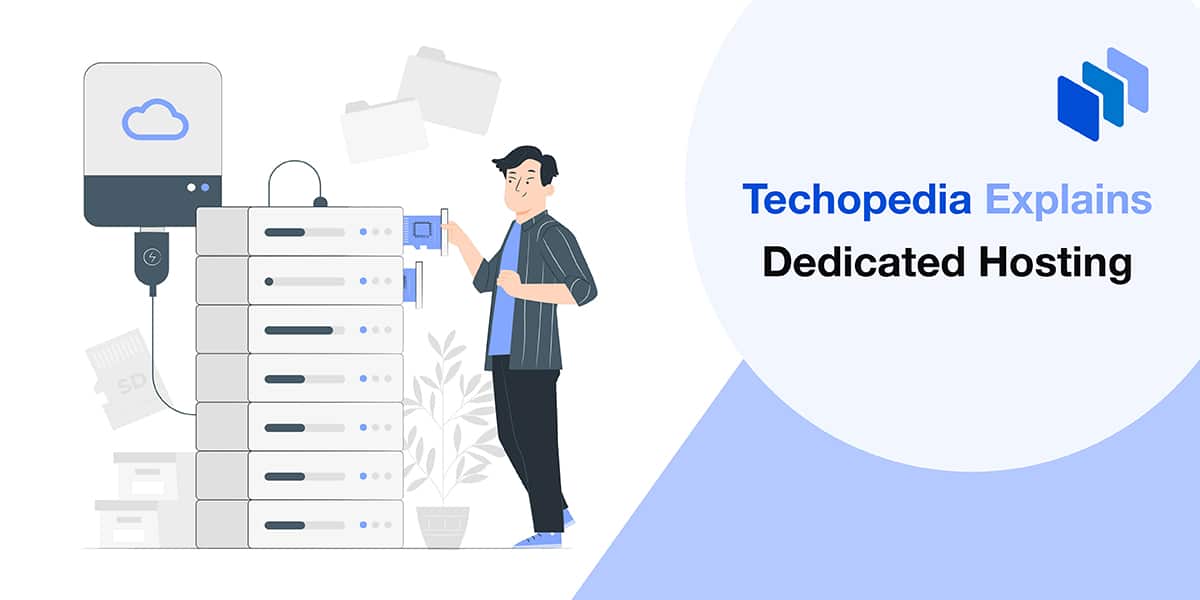You might not realize that the type of web hosting you choose can greatly influence your site's performance and user experience. With options ranging from shared to dedicated servers, each hosting type serves different needs and comes with its own set of advantages and challenges. It's vital to weigh factors like security, scalability, and customer support, as these can make or break your online presence. Comprehending how to navigate these considerations can lead you to a more informed choice, ultimately enhancing your website's potential. So, where do you start?
Key Takeaways
- Assess the type of hosting that best fits your needs, such as shared, VPS, dedicated, or cloud options.
- Evaluate performance metrics like load time, server uptime, and bandwidth allocation to ensure a smooth user experience.
- Prioritize security features, including encryption, firewalls, data backups, and malware protection, to safeguard your website.
- Consider scalability options and ease of migration for future growth and increased resource demands.
- Review customer support availability and responsiveness to address any technical issues that may arise.
Understanding Hosting Types
When you're diving into the world of web hosting, it's crucial to grasp the different types available, as each one caters to specific needs and technical requirements.
Shared hosting is typically the most economical choice, where multiple users share server resources, making it ideal for small websites.
If you need more control and resources, dedicated hosting gives you an entire server dedicated to your site, perfect for high-traffic applications.
VPS hosting, or Virtual Private Server hosting, strikes a balance between shared and dedicated options, offering increased performance and customization through virtual partitions.
For those needing scalability and flexibility, cloud hosting allows you to utilize multiple servers, ensuring your site can handle variable traffic loads without downtime.
Managed hosting simplifies server management, as the hosting provider takes care of maintenance and updates, which can be crucial for those focusing on content rather than technical issues.
If you're looking to run multiple client websites, reseller hosting allows you to sell hosting services under your brand.
For specialized needs, you can opt for WordPress hosting for optimized performance or eCommerce hosting tailored for online stores.
Grasping these options enables you to choose the right hosting solution for your unique requirements.
Assessing Performance and Speed
Your website's performance and speed are critical factors that directly impact user experience and search engine rankings. To assess these elements, start by examining load time—ideally, it should be under three seconds. Slow load times can result in high bounce rates, which negatively affect your site's credibility.
Look for hosting providers that guarantee high server uptime; 99.9% is the industry standard.
Next, consider content delivery. A robust content delivery network (CDN) can greatly reduce load times by caching content at various geographical locations, providing faster access for users around the globe.
Bandwidth allocation is another key aspect; confirm your plan offers sufficient bandwidth to handle your expected traffic without throttling.
Effective website optimization is crucial. Evaluate the hosting plan's support for caching solutions, as these can notably improve performance by storing copies of your site's pages, reducing load times for repeat visitors.
Finally, investigate how the host manages traffic, especially during peak times. A solid traffic management strategy will guarantee your site remains accessible and performs well even under heavy loads.
Evaluating Customer Support Options
While selecting a web hosting plan, evaluating customer support options is essential for guaranteeing smooth operations and timely assistance. You need to take into account how accessible and responsive the support team is, as technical issues can arise at any moment.
Look for hosts that offer multiple channels of communication, like live chat, which allows for real-time troubleshooting. This option often leads to quicker resolutions compared to traditional methods.
Additionally, check if the provider has a well-structured support ticket system. A robust ticketing system not only helps track your inquiries but also guarantees that your issues are documented and escalated appropriately.
Make sure to assess response times and the quality of assistance provided through these channels.
It's also beneficial to read reviews or testimonials regarding the support experience from current customers. This can give you insight into how effectively the hosting provider handles various issues.
Ultimately, reliable customer support can greatly impact your overall experience, granting you the freedom to focus on your content and business growth without worrying about technical obstacles.
Analyzing Security Features
Reliable customer support isn't the only aspect to evaluate; security features play an important role in protecting your website and its data. When selecting a web hosting plan, scrutinize the encryption protocols offered. Strong encryption guarantees that sensitive information remains confidential during transmission.
Additionally, assess the firewall options available. A robust firewall acts as a barrier against unauthorized access and malicious attacks.
Data backups are another critical feature. Confirm your hosting provider offers automated backups, allowing you to restore your site quickly in case of data loss.
Security certifications, such as ISO or PCI compliance, indicate that the provider complies with industry standards, which can reassure you of their commitment to security.
Furthermore, examine the malware protection measures in place. Effective malware scanning and removal tools can help safeguard your site from harmful threats.
DDoS mitigation is also crucial; it protects your site from distributed denial-of-service attacks that can disrupt your online presence.
Considering Scalability and Growth
When choosing a web hosting plan, it's important to take into account how well it can accommodate your future growth. You want a provider that utilizes robust cloud infrastructure, allowing for seamless scaling as your needs evolve.
A flexible hosting solution guarantees you won't face bottlenecks as traffic increases or as you expand your website's functionality.
Look for plans that offer dynamic resource allocation, which can automatically adjust bandwidth and storage based on your real-time requirements. This flexibility is necessary, especially if you anticipate spikes in traffic or plan to integrate new features that demand more resources.
Additionally, consider the ease with which you can migrate to higher-tier plans or additional services without considerable downtime or complications.
It's imperative to choose a host that not only meets your current needs but also supports your long-term objectives.
Reviewing Pricing and Plans
Evaluating the pricing and plans offered by web hosting providers is essential for guaranteeing you get the best value for your investment. Start by analyzing the pricing strategies each provider employs. Look for transparent pricing structures that clearly outline monthly and annual costs. Be cautious of hidden fees that can inflate your overall expenses.
Next, conduct plan comparisons to identify which features align with your specific needs. Consider storage, bandwidth, and support options, as these can greatly impact your website's performance. For instance, a plan with unlimited bandwidth may be more beneficial for high-traffic sites than a cheaper option with strict limits.
Keep an eye on promotional rates, as many providers offer introductory discounts. While tempting, verify that you understand the renewal rates and what your costs will be after the promotional period ends.
It's also wise to evaluate the flexibility of upgrading or downgrading your plan as your needs evolve.
Ultimately, choosing the right web hosting plan involves balancing cost with the essential features that enable you to maintain control and freedom over your online presence. By carefully reviewing pricing and plans, you'll make a more informed decision.
Checking User Reviews and Reputation
Before committing to a web hosting provider, checking user reviews and reputation is essential for making an informed choice. User feedback serves as a significant resource, offering perspectives into the provider's performance and reliability.
Look for patterns in the reviews; consistent complaints about downtime or poor customer support can be red flags. Conduct a thorough reputation analysis by investigating multiple platforms, including independent review sites and forums. This approach helps you gauge the overall sentiment about a provider and understand how they handle issues.
Pay attention to how the company responds to negative feedback; responsive and constructive engagement often indicates a commitment to customer satisfaction. Additionally, consider the longevity of the provider in the industry. Established companies typically have a wealth of user feedback, allowing for a more extensive reputation analysis.
You can also examine case studies or testimonials to validate claims about performance and security. Ultimately, leveraging this information enables you to select a web hosting provider that aligns with your needs, ensuring a reliable foundation for your online presence.
Don't underestimate the power of user reviews—they're a critical element in your decision-making process.
Frequently Asked Questions
What Are the Environmental Impacts of Different Hosting Providers?
When evaluating hosting providers, you'll want to contemplate their energy efficiency, carbon footprint, and eco-friendly practices. Choosing green hosting that prioritizes renewable resources and server sustainability can notably reduce your environmental impact.
How Do Hosting Plans Affect SEO Rankings?
Hosting plans considerably affect SEO rankings. You'll notice that server speed and uptime reliability directly influence your site's performance. Faster loading times and consistent availability improve user experience, ultimately boosting your search engine visibility and traffic.
Can I Switch Hosting Providers Later?
Yes, you can switch hosting providers later. Just make sure you plan for data migration carefully to minimize downtime concerns. With the right strategy, you'll maintain your site's performance and enjoy the freedom to choose.
What Payment Methods Are Accepted for Hosting Plans?
When it comes to payment methods for hosting plans, you've got plenty of options. Credit card options are common, but many providers also accept alternative payments like PayPal or cryptocurrencies. Choose what suits you best!
Are There Any Hidden Fees in Hosting Plans?
When evaluating hosting plans, you should always check for hidden charges. Verify the provider highlights billing transparency; this way, you can avoid unexpected costs and maintain control over your budget and online presence.
Conclusion
In your quest for the perfect web hosting plan, envision a sturdy bridge supporting your online ambitions. By carefully weighing hosting types, performance metrics, security measures, and customer support, you'll create a solid foundation for your digital presence. As you navigate through pricing and user reviews, remember that every detail shapes your website's journey. With the right choice, you'll not only weather storms but thrive in the vast ocean of the internet, steering confidently toward growth and success.






